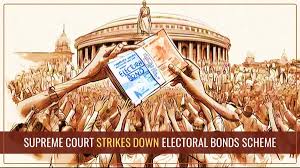New Electoral Reforms Spark Nationwide Debate

New Electoral Reforms Spark Nationwide Debate
A sweeping set of electoral reforms recently introduced by the national government has ignited a wave of discussion, controversy, and protest across the country. Touted as a move toward greater transparency and fairness in the democratic process, the reforms have nonetheless triggered concern from opposition leaders, civil society groups, and segments of the voting population who fear the changes may favor the ruling party.
The reforms include a restructuring of constituency boundaries, a revised electronic voting system, and new regulations on campaign financing. According to government officials, these measures are designed to modernize the electoral process, reduce fraud, and enhance voter confidence. However, critics argue that the redrawing of electoral districts appears to weaken opposition strongholds, while the new campaign finance rules may disproportionately benefit well-funded political parties.
In addition, the implementation of a new biometric voter identification system—though seen by some as a tool to prevent duplicate voting—has raised privacy concerns. Activists worry that the lack of clear data protection laws could lead to voter surveillance or misuse of personal information.
The public reaction has been swift and polarized. Supporters of the reforms, including several pro-government media outlets and some political analysts, claim the changes will usher in a more secure and efficient electoral process. On the other hand, civil liberties organizations, student unions, and opposition parties have taken to the streets in protest, demanding greater consultation and transparency before any implementation takes place.
The debate has also sparked heated exchanges in parliament, where opposition lawmakers have accused the ruling party of attempting to consolidate power under the guise of reform. In response, government representatives insist that the reforms are long overdue and align with international best practices.
As the next general election approaches, the pressure is mounting for electoral authorities to address public concerns and ensure that the reforms do not erode trust in the democratic process. Whether these reforms will ultimately strengthen democracy or deepen political divides remains to be seen, but one thing is certain: the issue has captured national attention and is likely to shape the political landscape for years to come.